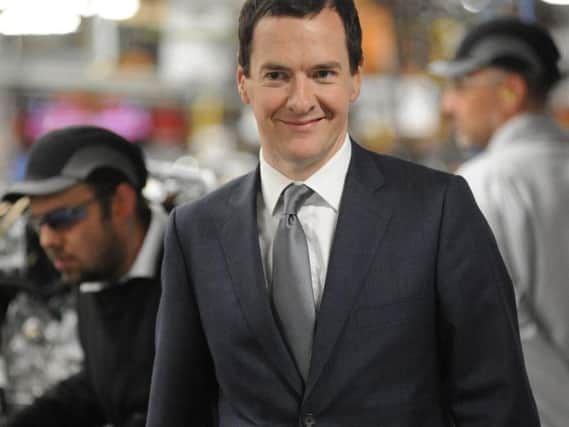COLUMN: 8 things we have learned from Chancellor’s Autumn Statement


Here, Tommaso Faccio, Lecturer in Accounting and Taxation at Nottingham University Business School, looks at what we have learned.
1) The big U-turn on tax credits.
Following the “no” vote in the House of Lords, Osborne has decided to fully retract his plan to further reduce tax credits. However, this will mean the “welfare cap” will be breached in the early years of the Parliament. In the debate on the welfare cap in March 2014, he said that breaching it would be “a failure of public expenditure control”.
Advertisement
Hide AdAdvertisement
Hide Ad2) The big picture: strong growth and back in the black by 2019/2020.
GDP Growth forecast to grow 2.4 per cent this year, 2.4 per cent in 2016, 2.5 per cent in 2017, 2.4 per cent in 2018, and 2.3 per cent in 2019 and 2020. The Office for Budget Responsibility says the economy will grow robustly and living standards will rise every year. Around 1m jobs will be created over the next five years.
Deficit is forecast to be 3.9 per cent this year, falling to 2.5 per cent in 2016-17, 1.2 per cent in 2017-18, and 0.2 cent in 2018-19. In 2019-20 there will be a surplus of 0.5 per cent, followed by one of 0.6 per cent the following year. These forecasts are based on strong future tax revenues and the windfall of low-inflation and low interest rates.
3) Police and NHS budgets to be protected.
Whilst a number of significant departmental cuts have been announced, with an additional 80,000 public sector jobs are expected to go, funding for NHS, Education and Counter-terrorism is going up. The Police budgets will not be cut. Osborne says the police protect us, so we will protect them.
4) A country of builders for the “building” Chancellor.
Advertisement
Hide AdAdvertisement
Hide AdOsborne revealed plans to double the housing budget, to £2bn a year. This will fund 400,000 new affordable homes by the end of the decade; affordable to buy, not just to rent. However, it is bad news for landlords, as the new stamp duty rate for people buying homes as buy to let will be 3 per cent higher than normal stamp duty.
The Department for Transport’s capital spending budget will increase by 50 per cent to £61bn by 2020/2021.
“That funds the largest road investment programme since the 1970s, for we are the builders,” said Osborne.
5) State pensions to go up from next year.
The new rate for the basic state pension will increase by £3.35 a week next year, up to £119.30.
6) Increased powers devolved to local government.
Advertisement
Hide AdAdvertisement
Hide AdLocal government is sitting on property worth £250bn. Local councils will be allowed to keep 100 per cent of the receipts from the assets they sell. Power over business rates will also be devolved to local government, which will be allowed to determine their local business rates. Local councils will also be allowed to increase the rate of council tax up to 2 per cent, to fund ‘social care’ expenditure.
7) The apprenticeship levy.
£3bn will be raised by the biggest businesses in the country through an apprenticeship levy set at 0.5 per cent of the payroll bill to fund apprenticeships schemes. However; due to way the levy is calculated, it is expected that only 2% of employers will be required to pay the levy.
8) The “tampon tax”.
Some 300,000 people have signed a petition calling for the removal of the VAT on sanitary products and the government wants to change EU law so it can abolish that altogether. But, until then, the £15m raised from the tax will go to women’s charities that support vulnerable women.